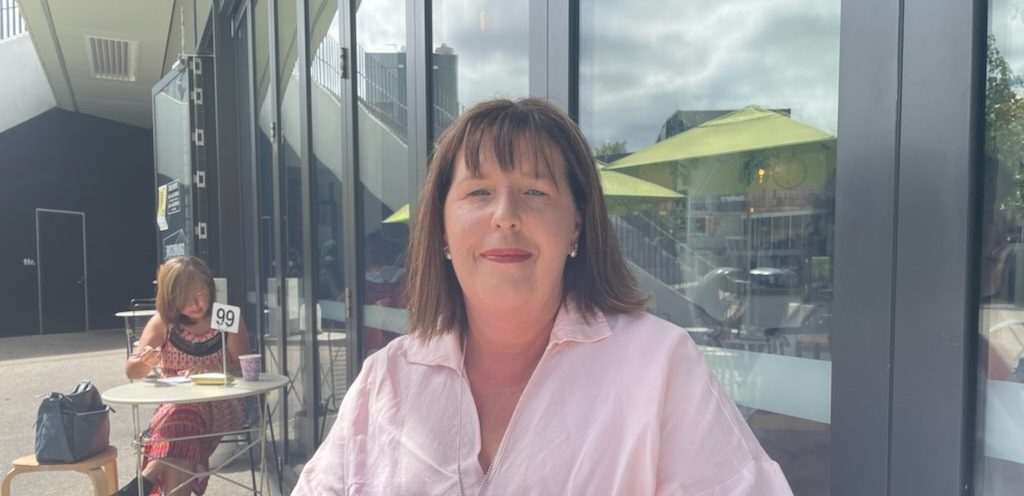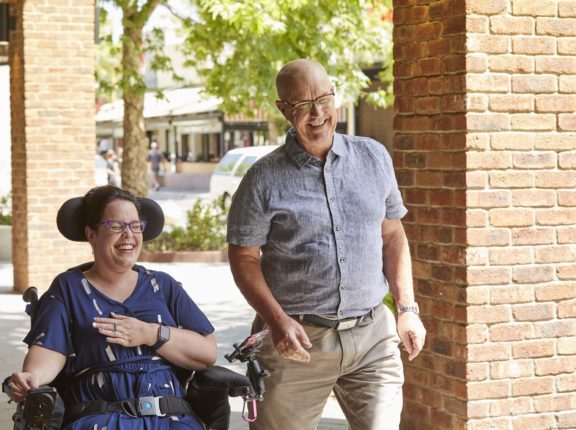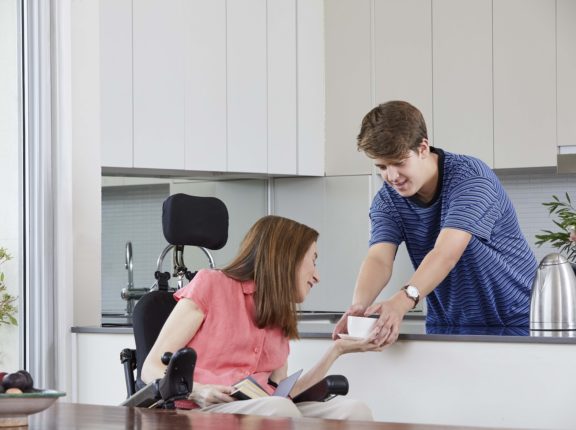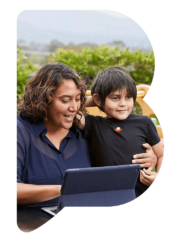We caught up with Sonia for a coffee and a chat earlier this month. Sonia is a wife, a mother, a carer, and a fierce advocate for her son Darcy. She and her family (husband Mark and children Jack, Jessie, Paddy, and Darcy) live on a small farm in O’Connell, not far from the NSW Central West town of Bathurst.
‘We’re both not town people, and we love O’Connell. We did live in Bathurst for seven years and the kids still go to school there. We’ve lived in O’Connell now for eight years and it’s great. It’s a crazy funny farm with crazy sheep and a dog, my cat, and the kids. There’s open spaces where you can yell like I do, and the children and neighbours don’t hear me…normally!’
If we had to think of a word to describe Sonia, it would have to be determined, and she has used every ounce of this determination since starting out on her caring journey ten years ago.
The caring journey
Like so many parents of children with developmental delays and chronic health issues, Sonia had serious concerns about Darcy’s health as a baby but struggled to be heard by the medical fraternity.
‘I kept saying ‘somethings wrong… somethings wrong, and at first, they thought it might be Bronchiolitis. But he wasn’t eating, he was spewing everything up, he was sleeping and not waking up and I said – this is my fourth child, and this is not right. We were beating a path to the doctor who kept saying ‘it’s a virus’ and I was saying ‘no – there’s more to it’.
After a series of false starts and wrong turns, Darcy was diagnosed with Pharyngomalacia and Tracheomalacia. In Sonia’s words “…the flap of skin which keeps the food out of his airway was too big making it hard to breathe and drink, and his Trachea was floppy – meaning it was too big for his little body”.
Still a tiny baby, Darcy underwent surgery to correct the issues, and although there was some improvement, he continued to experience recurring bouts of pneumonia, and the chronic ill health started to impact negatively on his general development.
‘And then, when Darcy was a bit over one, we went and saw the Paediatrician and I was told that he wasn’t meeting his milestones and he needed therapy – and lots of it. And that’s where I hit a brick wall. Health wouldn’t see him. Nobody was Paediatric trained out here…’
Describing those early days, Sonia says ‘It was a nightmare of pureeing food, tubes in and out, IV antibiotics, rides in ambulances and always those trips to Sydney – and you were down there by yourself in Sydney – and I’m managing three kids, helping with the business… I had to get a smart phone so I could manage life while on the road.
Eventually Darcy was diagnosed with Global Developmental Delay. Sonia was told he would never walk or talk – that he would be in a wheelchair all his life. Not prepared to accept this prognosis without a fight, Sonia continued the regular journeys to and from Sydney for intensive therapy sessions.
‘We went down to Royal Far West for therapy. The whole family could go; the kids could go to school there and we could go to appointments.’
Her determination paid off, and it’s no surprise to Sonia that today ‘…that kid walks, and that kid talks”.
The hardest thing
When asked, Sonia says the hardest thing about being a carer is that ‘There’s no equation to explain it. Not having any answers as to why he (Darcy) is the way he is, or what you can do to change it –how to help him reach his potential’. She speaks with frustration about all the unwritten information, ‘What you just need to know, but you only learn from those “in the know”.”
The best thing
Over time, you do find the information you need, and you do build your networks – and in Sonia’s experience, that network can turn out to be one of the best things about being a carer.
‘It’s all the people I’ve gathered on the brick road’. It’s not just other mothers; it’s therapists, it’s health professionals; contacts; educators – there all there, and they know the path you’ve been on.’
What keeps you going?
‘I’ve got a good coffee machine now – I like coffee’
Hopes and dreams
Sonia has dreams for future– but as is the case for so many carers, she is dependent on being able to trust that Darcy will be in a situation that allows her the freedom to realise them.
‘I want to travel.
I want to travel, and I want to know that Darcy has all the skills he can for me to be able to do that. I see these other ones – Jack’s getting his licence in a couple of weeks, Jessie’s going to be driving about in the car at the end of the year – I can see their projection, but Darcy is the unknown and I think that holds me back from what’s for me…’
Sonia is also passionate about sharing what she has learned over the years with carers who are just starting out on their caring journey.
‘What you learn, going through early childhood, preschool, long day cares – what I’ve learnt is invaluable for these mums just starting out’.
When Darcy was still a baby, Sonia was invited to sit on the Sydney Children’s Hospital Network ‘Families and Consumer Council’, a council which is made up of parents, carers and community members who act as an advisory body- a community voice helping to shape the future experience of patients and their families. For seven years Sonia travelled to Sydney for the bimonthly meetings, and she found this provided an invaluable glimpse into how the health bureaucracy works.
“I said to my husband – I can do this, I can help other people, I can be an advocate, I can be a voice”.
Top Tip
‘Don’t listen to a thing anyone tells you. Ring up, research – don’t be afraid to believe. Don’t take no for an answer. No child is a textbook. Nothing is textbook. Keep fighting. Try!’
If you’re one of Australia’s 2.7 million unpaid carers, you can access practical advice and support by contacting Carer Gateway on 1800 422 737.



